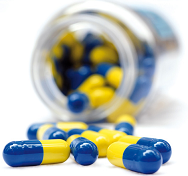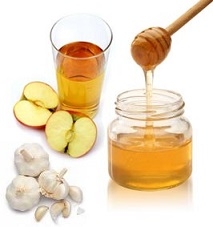Oftentimes, a sore throat and cough just won’t go away, regardless of all the store-bought cough syrup you’ve tried. Antibiotics may be the only way to obtain relief, but the tight regulation behind antibiotics-containing medication entail a doctor’s visit and a prescription.

Is it possible to get antibiotics
without a prescription? A representative of the College of Physicians and Surgeons of Ontario verified that the answer is a ‘
no’. Antibiotics come in many different forms though and the ‘
no’ doesn’t apply to every type. Speaking with the Women's College Hospital, we learned that the antibiotics used to treats colds and flus require a prescription, but there are some topical creams containing antibiotics (used for cuts and wounds) that can be bought
OTC-style.
Governments, associations and drug prescriptions
At the federal level, Health Canada determines whether a medication needs a doctor’s prescription or not. Accessible on the Health Canada webpage is the
Prescription Drug List. If any of the ingredients found on this list is used in a medication, a prescription would be required to get it.
At the provincial level, the Drug and Pharmacies Regulation Act ensures some more finicky refinement through the National Association of Pharmacy Regulatory Authorities (NAPRA). Every province has an appointed regulatory body that works under NARPA. In the case of Ontario, it is the
Ontario College of Pharmacists.
“
The College’s mandate is to serve and protect the public and hold Ontario’s pharmacists and pharmacy technicians accountable to the established legislation, standards of practice, code of ethics and policies and guidelines relevant to pharmacy practice,” said a consultant of the College.
The death of antibiotics
Long before the discovery of antibiotics, countless lives fell victim to life-threatening illnesses, particularly children. For instance, 90% of children who suffered from bacterial meningitis (a severe disease with flu-like symptoms) died. Although our
immune system can sometimes fight the infection through antibody production, triumph is not always guaranteed and even when one beats the illness, survival tends to be laced with life-altering aftereffects. For example, children of the pre-antibiotics period who survived bacterial meningitis often suffered from impairments like mental disabilities.

Fortunately, that is not the case now, but the
future of antibiotics use is somewhat unhinged. Overuse of antibiotics has resulted in the development of bacterial immunity, gradually rendering your doctor’s prescription ineffective. The Ontario Medical Association (OMA) described the current antibiotics crisis: “
One of the most fundamental and life-saving tools in medicine is endangered”.
An OMA spokesperson said, “
Ontario’s doctors are concerned about the growing rate of antibiotic resistant bacteria. Patients are at risk of becoming sicker, taking longer to recover and it some cases dying from previously treatable diseases. Data shows that we can reduce antibiotic resistant bacteria when the use of antibiotics is modified.”
In a
report assembled by the OMA, entitled “
When Antibiotics Stop Working”, it was found that the antibiotics used a decade ago to provide sore throat relief is inadequate now. Nowadays, a child with a sore throat is likelier to suffer from several bouts of illness. Furthermore, doctors are being forced to prescribe new antibiotics with greater side effects to combat illness symptoms.
The alternatives: 5 natural antibiotics
What can you do to ensure that antibiotics will serve you in your time of need? The obvious answer is to limit the use of medications containing antibiotics. Antibiotics should not be your go-to cure. After all, people have survived through sickness for millennia before the discovery of modern medicine, thanks to natural remedies. Here we list five natural ingredients with
antibiotic properties that most likely line your cupboards already. Boost your immune system, take preventative measures, and start incorporating these items into your diet:

- Garlic
- Ginger
- Onion
- Turmeric
- Honey (especially Manuka honey)
When you’re feeling unwell, simply
increase the dosage and add these ingredients to your teas and soups. Next time you’re suffering from a sore throat, steep ginger in boiling water for 10 minutes, add some lemon and honey once the tea cools down a bit, and enjoy soothing relief. Alternatively, a concoction of steamed milk, turmeric and ground pepper alleviates sore throats.

 Is it possible to get antibiotics without a prescription? A representative of the College of Physicians and Surgeons of Ontario verified that the answer is a ‘no’. Antibiotics come in many different forms though and the ‘no’ doesn’t apply to every type. Speaking with the Women's College Hospital, we learned that the antibiotics used to treats colds and flus require a prescription, but there are some topical creams containing antibiotics (used for cuts and wounds) that can be bought OTC-style.
Is it possible to get antibiotics without a prescription? A representative of the College of Physicians and Surgeons of Ontario verified that the answer is a ‘no’. Antibiotics come in many different forms though and the ‘no’ doesn’t apply to every type. Speaking with the Women's College Hospital, we learned that the antibiotics used to treats colds and flus require a prescription, but there are some topical creams containing antibiotics (used for cuts and wounds) that can be bought OTC-style.
 Fortunately, that is not the case now, but the future of antibiotics use is somewhat unhinged. Overuse of antibiotics has resulted in the development of bacterial immunity, gradually rendering your doctor’s prescription ineffective. The Ontario Medical Association (OMA) described the current antibiotics crisis: “One of the most fundamental and life-saving tools in medicine is endangered”.
Fortunately, that is not the case now, but the future of antibiotics use is somewhat unhinged. Overuse of antibiotics has resulted in the development of bacterial immunity, gradually rendering your doctor’s prescription ineffective. The Ontario Medical Association (OMA) described the current antibiotics crisis: “One of the most fundamental and life-saving tools in medicine is endangered”.
